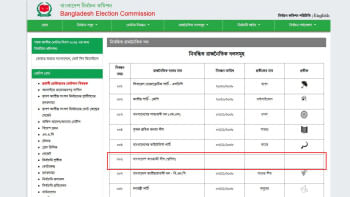Is the wolf just around the corner?
Two foreign nationals have been slain in this country in the space of five days. Who killed them has got the hierarchy of three answers starting at the bottom rung with the motorbike-riding assailants, who fired the fatal shots. Next is the Islamic State, which allegedly claimed responsibility for both the killings and threatened to kill more. The uppermost layer has the conspiracy theory changing with the sleight of mouth. In short, these two murders are inlaid with three mysteries squeezed into one doubt.
It's possible that all three of these mysteries are real in their respective contexts. The killers killed, the claimants claimed and the conspirators conspired. It's also likely that the murders at once have criminal, militant and political angles to them. All of these three things in this country have reached their boiling points.
Motorbike killers are nothing new for Bangladesh, because these hired hands on wheels have long been a growing menace. They have been carrying out vendetta killings, political assassinations and snatchings and robberies in the streets and alleys of this country for many years now. In the last couple of decades, militants have mushroomed in this terrain and hordes of them being hauled to prison almost every day is failing to stem the flow. And, the political despair has long persisted to provide a spark for some kind of an ignition.
If the question about who killed the two foreigners engenders three answers, it also engenders three new questions. The first question: Who coordinated the two murders involving criminals, militants and politicians? Secondly, why have they chosen now as their timing for these atrocious acts? Thirdly, why are they targeting foreigners?
It's obvious that somebody is trying to fish in the troubled water. The shooters may have killed for money or out of ideological excitement. The IS may have stepped in to expand its jurisdiction, and the local politicians may simply have been tempted to seize the day. But did these three parties find each other at the confluence of their common interests? Or, is there a catalyst that brought them together to increase the rate of reaction without being consumed in the process?
As of now, everything looks iffy and nothing looks impossible. The Prime Minister believes that BNP-Jamaat is behind the murders, not the IS. The Home Minister has ruled out the possibility of IS footprint in Bangladesh. The American ambassador has informed us that the US is working with Bangladesh to verify the IS claim of killing the foreign nationals. The additional superintendent of police, who is leading a CID probe into the killing of the Japanese national, is convinced that hitmen, not militants, have committed this particular crime.
Sherlock Holmes warns us in A Scandal in Bohemia that it's a capital mistake to theorise before one has data in hand. He explains that it leads to insensibility because one begins to twist facts to suit theories instead of theories to suit facts. The government is theorising to blame rival political parties. The opposition parties are theorising to blame the government. But what strikes as odd is that the IS has been mum on this subject except for its dubious tweets.
It's the unconfirmed claim of IS involvement that has drawn so much global attention to these two murders. Foreigners are getting killed everywhere almost every day. The Egyptian army killed eight Mexican tourists last month mistaking them for Islamic militants. Last June, 30 Britons, three Irish, two Germans, one Belgian, one Portuguese, and one Russian were killed in the beach attack in Tunisia. According to statistics from the U.S State Department, 811 Americans died abroad from non-natural causes in 2014.
Hence, it largely hinges on the IS claim. If that proves wrong, the murders will look like street crimes taking the sting out of their investigation. But the nature of the crimes tells us one thing for sure, that these are the work of professional men. Whether those men acted on their own, or on behalf of an extremist group, or a political cartel is critical because that can give us an idea at what rate the fuse is burning to set off explosion.
If criminals collaborated with politicians in this particular instance, they have created an even more fertile ground for extremists. If it has been between extremists and politicians, in that complicity criminals have found their indulgence. And if criminals joined extremists, politicians can still save the day if that's what they want. If all of them joined hands, the countdown to doomsday has started.
For long criminals and politicians have nourished each other, and if the militants have joined them now, that will further complicate the compound. The Aesop's fable adequately warns that every time one cries wolf, the wolf may be just around the corner.
The writer is the Editor of weekly First News and an opinion writer for The Daily Star.
Email: [email protected]

 For all latest news, follow The Daily Star's Google News channel.
For all latest news, follow The Daily Star's Google News channel. 



Comments